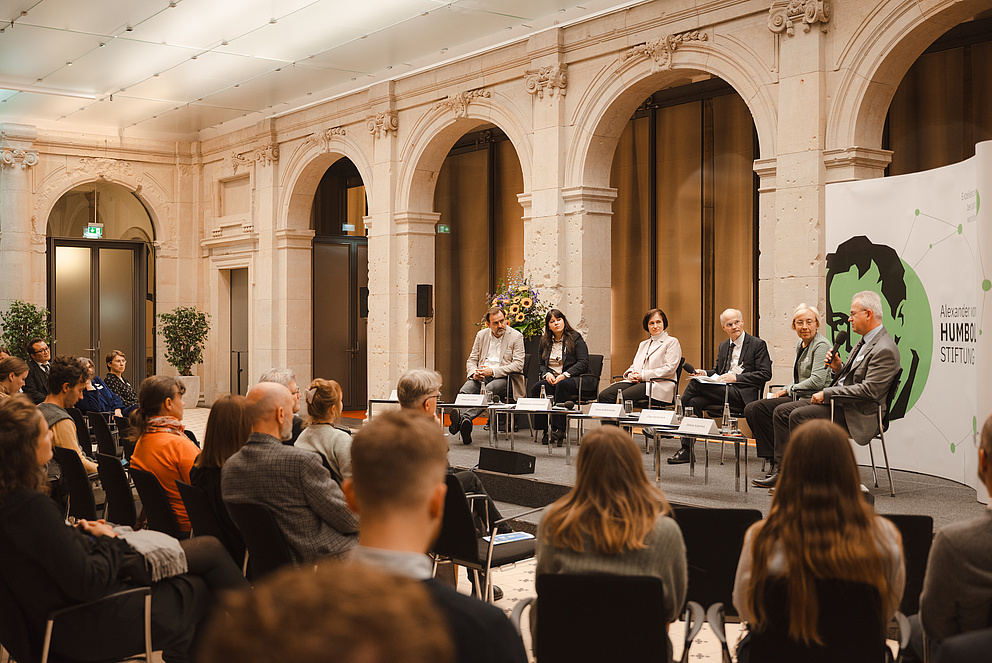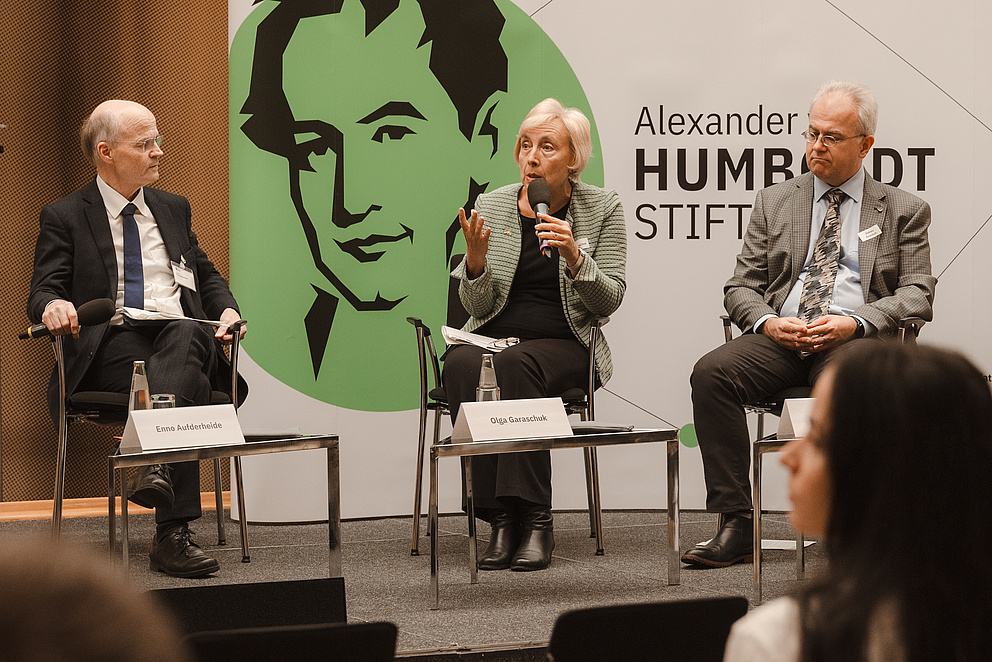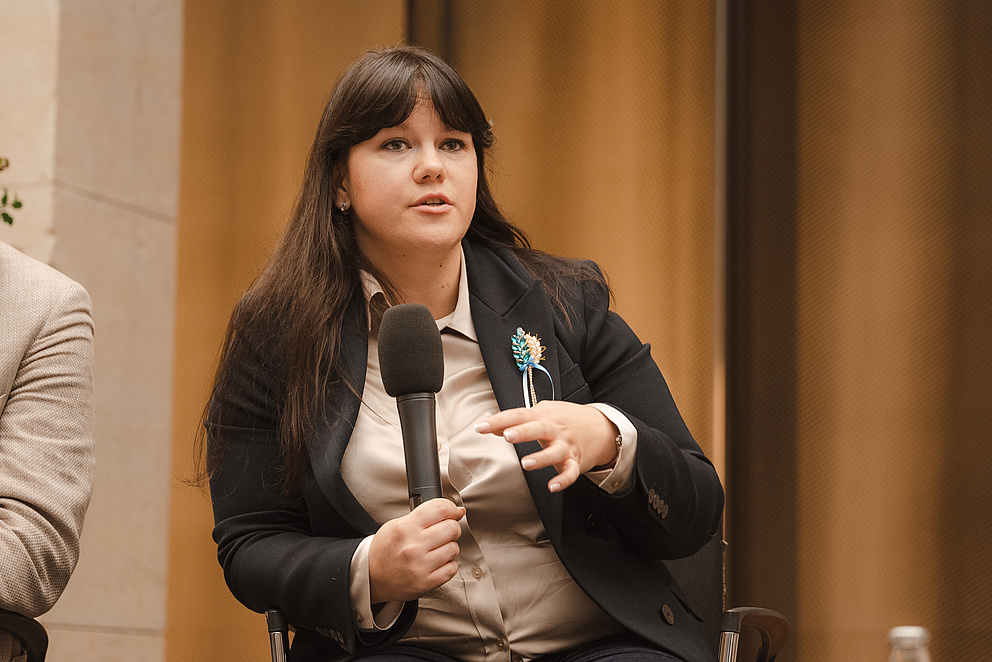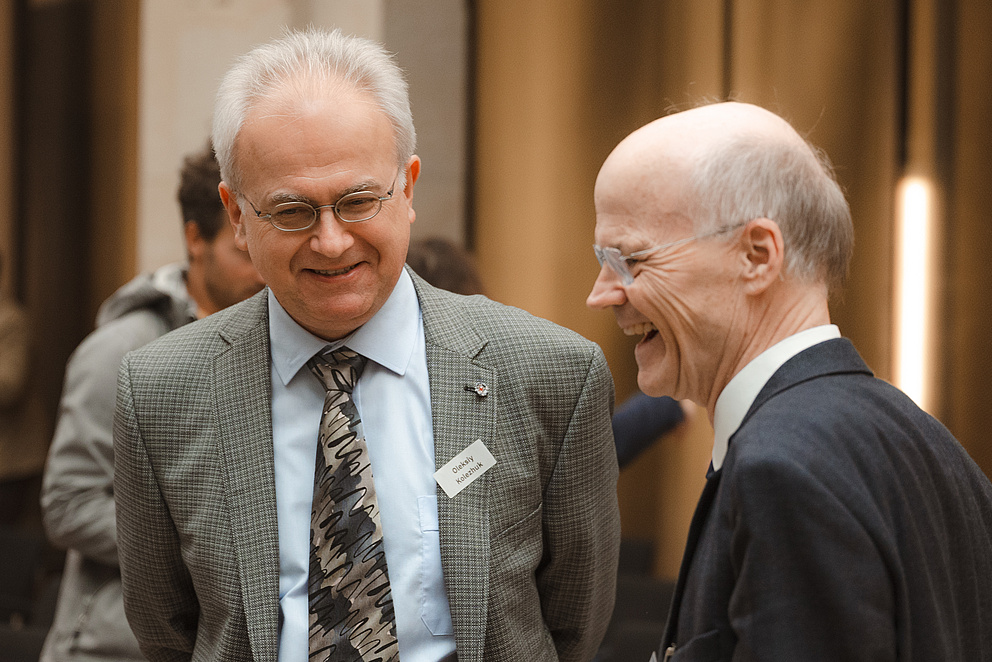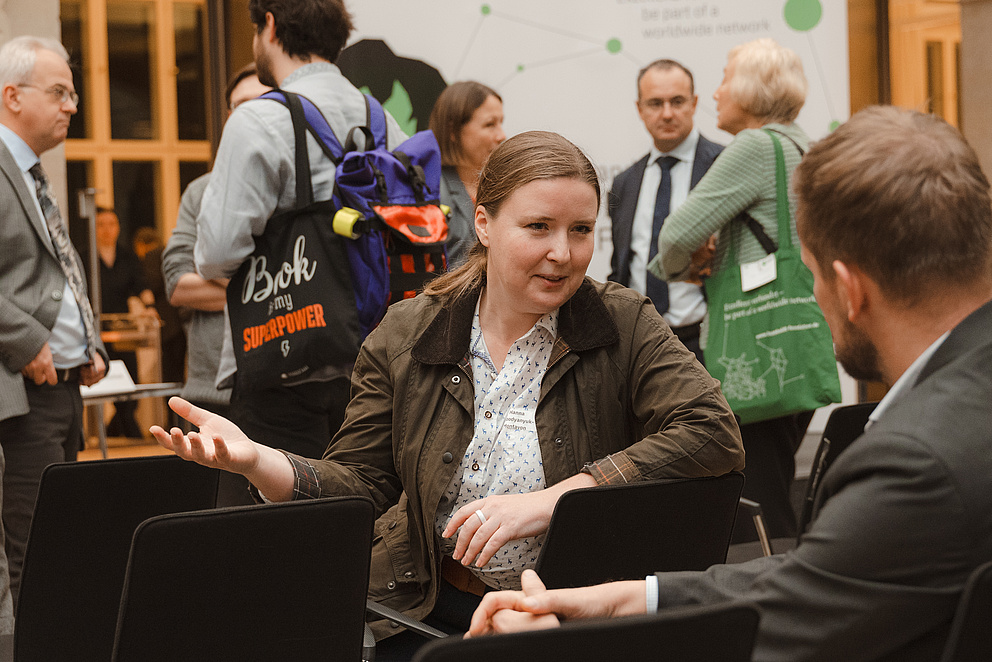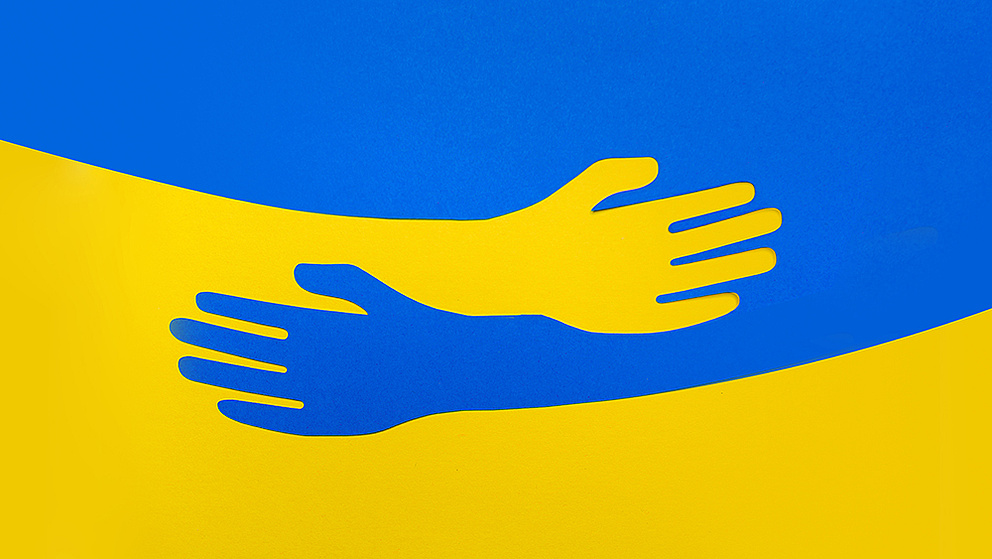

Contact
Press, Communications and Marketing
Tel.: +49 228 833-144
Fax: +49 228 833-441
presse[at]avh.de
To date, the Humboldt Foundation has provided assistance to approximately 150 Ukrainian researchers so they can continue their research work in Germany or Ukraine. In addition, the Foundation, as a member of the EU-financed MSCA4Ukraine consortium, has enabled 124 threatened scientists and scholars from Ukraine to continue their research at host institutions in Europe. But many such emergency programmes which funding organisations and universities launched following the start of Russia war of aggression against Ukraine, will soon come to an end. What happens then? At three events, the Humboldt Foundation has been propelling a discussion about the future of science and academia in Ukraine.
On 5 October 2023, the HUMBOLDT4UKRAINE Online Networking Forum was held with more than 120 guests, including 100 Ukrainian researchers, from more than 20 countries. They discussed measures that would be suitable for rebuilding Ukraine’s science system after the war and, in the long term, make Ukraine an internationally attractive location for conducting research. Germany, which can look back on a long history of research collaboration with Ukraine, was urged to lead the transformation efforts in the Ukrainian science system and higher education sector.
The most important measures were summarised in a report. They include supporting researchers who have remained in Ukraine, improving working conditions for researchers on a long-term basis, establishing centres of excellence, and driving Ukraine’s speedy admission to the European Research Area (ERA). As the next step, a working group will be preparing a position paper on the subject of “Science to Policy for Ukraine” on the basis of these findings.
The resultant recommendations were presented in Berlin on 1 November 2023. Moderated by the Humboldt Foundation’s secretary general Enno Aufderheide, experts who are working in Ukraine and other countries discussed necessary steps for research promotion and collaboration. The event was supported by Springer Nature.
The mathematician Oleksandra Antoniouk, chairwoman of the Scientific Committee of the National Council of Ukraine for Science and Technological Development and long-time president of the Humboldt Club in Ukraine, said, “International collaboration between Ukrainian and German researchers continues in spite of the war. It plays an important role in Ukraine’s integration into the European Research Area (ERA), should remain a top priority and be closely linked with plans towards Ukraine’s EU membership.”
The results and experiences from these two events have been presented to the delegation of the Ukrainian science minister Oksen Lisovyi, Germany’s research minister Bettina Stark-Watzinger and other high-ranking visitors on 9 November 2023 during a networking reception in Berlin. The networking reception held at the close of the Berlin Science Week generated further impetus for bilateral cooperation in research and education and for the rebuilding of the research community in Ukraine. The joint commitment of German research institutions to supporting the Ukrainian scientific community both now and in the future was emphasized.
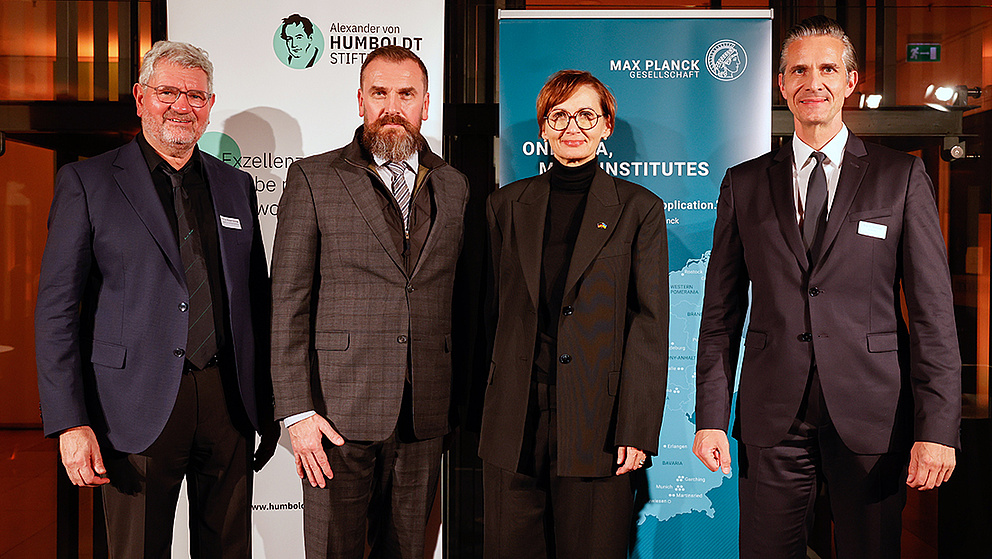
The active participation and lively discussions at these events show that networking activities continue to be of enormous importance for Ukrainian researchers. The Alexander von Humboldt Foundation actively supports bundling the expertise of its network, the MSCA4Ukraine and Philipp Schwartz communities and other parts of Ukraine’s academic diaspora and, in doing so, offering valuable input for political decision-making processes.

